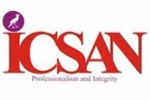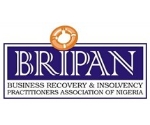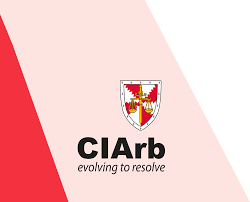The Business Facilitation Act & Its Impact on Ease of Doing Business in Nigeria
This made it uneasy for the stakeholders to interact. In addition, Nigeria being an emerging economy, had her own fair share of institutional gaps. These institutional gaps created unnecessary bureaucracies and bottlenecks in the business clime.
Both factors made it a tad difficult to carry on business in Nigeria prior to 2016. In response to these challenges, in 2016, the government of the day set up the Presidential Enabling Business Environment Council (PEBEC) to carry out major reforms of the business sector.
The primary responsibility of the PEBEC was to promote the ease of doing business in Nigeria. In line with its mandate, the Secretariat proposed major reforms in the business clime to keep up with emerging trends in developed economies.
These proposed reforms became backed by law through the enactment of the Business Facilitation (Miscellaneous Provisions) Act, 2023 the (“Act”). This law has now made Nigeria more attractive to both local and international investors.
We will examine some of these reforms in details below.
Exemption from Registration for Foreign Companies
Prior to the Act, any foreign company that intended to carry on business in Nigeria was required to incorporate a new company in Nigeria for that purpose before carrying on business. The only exception to this rule were instances where the foreign company is exempted under any treaty which Nigeria is a party or where the foreign company is exempted under any law already in force in the country.
However, the Act has now included another exemption by donating powers to the National Assembly to make laws to exempt a foreign company from registration. Therefore, any foreign company coming into Nigeria to do business which may be of national interest may be granted a waiver from registration by the National Assembly.
Increase in Share Capital
The ease of doing business in Nigeria under the Act now makes it permissible for a company to increase its issued share capital by the allotment of new shares through general meeting or a board resolution. Prior to the Act, the increase of the issued share capital of a company could only be carried out during a general meeting of the company.
The Act has now made it possible for the Board of a company to pass a resolution for the increase of the issued share capital in addition to the power to increase same by members in a general meeting. The power of the Board to increase the issued share capital is synonymous with that of the members in general meeting and is to be exercised in line with the articles of association of the company.
Companies may now amend their articles of association to reflect this change and insert clauses in the article to forestall the abuse of this power by the Board.
Pre Emptive Rights of an Existing Shareholder
To ease doing business in Nigeria for public listed companies, the Act has restricted the pre emptive rights of an existing shareholder to be offered newly issued shares to only private companies.
Hitherto, this right was applicable to both private and public companies. By this Act, publicly listed companies will now find it much easier to raise capital for the expansion of business operations.
In addition, for private companies, the Act has also eased the obligations relating to pre emptive right of existing shareholders of such companies. The obligation is now time bound such that an existing shareholder in a private company is now obliged to communicate an acceptance of the newly issued shares within 21 days of offer. Where the offer is not accepted within 21 days, it is deemed to have been declined.
This is as opposed to what was obtainable before where the shareholder was only obligated to communicate an acceptance within a reasonable time.
Return of Allotment of Shares
The Act has now abridged the time frame for companies to file a return of allotment with the Corporate Affairs Commission (CAC). Prior to the enactment of the law, companies were required to file a return of allotment of shares with the Corporate Affairs Commission within one month. Under the current window, the time frame has been shortened to fifteen (15) days.
Threshold for Insolvency
The Act has also amended the threshold for the determination of a company’s insolvency.
Prior to this legislation on the ease of doing business, the threshold for the determination of the inability of a company to pay its debt was the sum of N200,000 (Two Hundred Thousand Naira). However, the Act has now transferred the power to the Corporate Affairs Commission (CAC) to determine this threshold.
Virtual Meetings for Publicly Listed Companies
Following the outbreak of the COVID-19 pandemic, the existing law at the time was amended to allow for general meetings to be held virtually, but this was only limited to private companies.

To facilitate the ease of doing business in Nigeria, the Act has now made it permissible for publicly listed companies to hold their general meetings virtually in line with the provision of their articles of association. Therefore, both private and public companies can now conduct meetings virtually.
Electronic Voting
The Act, having enabled companies to carry out virtual meetings, makes it permissible for companies to vote by electronic means. Any resolution at the general meeting that requires voting could be decided by a voting process conducted virtually, hence easing how businesses operate in Nigeria.
Allotment of Shares to the Public by Private Companies
The Act has now made it permissible for private companies to allot shares to the public. This share allotment process is to be regulated by the Securities and Exchange Commission (SEC). This is a welcome development as it opens another avenue for private companies to raise capital for much needed expansion and growth.
Abridgment of Time for approval of Entry Business Visa
To aid the ease of doing business in Nigeria, the Act has now abridged the time frame for approval or otherwise of entry business visas. It is now mandatory for the Comptroller General of Immigration to issue or reject such entry visas within 48 hours of receipt of the application.
This would help to eliminate the backlog of pending visa applications at the Immigration office and equally make the business clime much more attractive to prospective investors.
Registration of Contracts involving Transfer of Technology
Under the old regime, it was the requirement of the law that any contract entered between any person in Nigeria with a person outside Nigeria which involves the transfer of technology, use of trademarks, and patents to be registered with the National Office of Technology Acquisition and Promotion (NOTAP) within 60 (sixty) days of execution. A failure to register this agreement within this timeframe attracted penalties.
However, the Act, in a bid to further make Nigeria an attractive business destination and aid the ease of doing business, companies in the first two years of its business operations are exempted from liability for late registration if the contract is registered at the end of its second year of business.
CONCLUSION:
The promotion of the ease of doing business in Nigeria under the Act is a welcome development which we believe would make Nigeria an attractive investment destination for businesses.
Berkeley Legal is a dedicated leading full-service business law firm in Lagos, Nigeria. We provide comprehensive and sophisticated range of specialized and personalized legal services that are designed to meet the various needs of a highly diversified local and international businesses.
If you would like to know more about the ease of doing business in Nigeria, please contact info@berkeleylp.com
The information provided in this article is for general informational purposes only and does not constitute legal advice.







